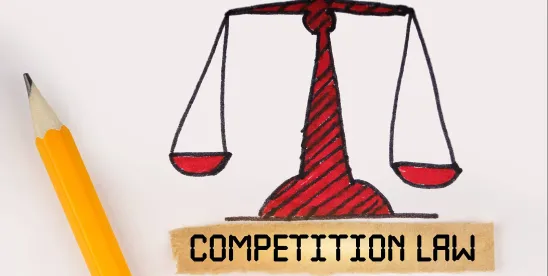On December 11, 2024, the U.S. Department of Justice (DOJ) and the Federal Trade Commission (FTC) (together, “the Agencies”) jointly withdrew the 2000 Antitrust Guidelines for Collaborations Among Competitors (“Guidelines”). For over two decades, these Guidelines provided companies doing business in the United States with a framework to assess the legality of collaborations with competitors, such as joint production agreements, joint ventures, joint marketing, distribution or sales arrangements, joint research partnerships, information sharing, and certain trade association activities. The Guidelines also provided antitrust “safe harbors” or “safety zones” for certain types of collaborations that the Agencies stated would not be subject to antitrust challenges. The joint withdrawal of the Guidelines clarifies the Agencies’ decision to remove any antitrust safe harbors. The withdrawal also was notable, as the Agencies’ action occurred shortly before the incoming Trump Administration and the transition to a new FTC chair.
An Overview of the Guidelines
The safety zones and other general principles set forth by the Guidelines assisted parties contemplating collaborations to understand when joint business activities are relatively unlikely to raise antitrust concerns. This includes certain situations where collaborations would not significantly increase market power (i.e., if the market share of the parties involved is relatively low), where collaborations lower costs or promote innovation, or where the participants hold complementary — rather than directly competitive — positions in the market. Although the Guidelines were not binding statements of law, they served as persuasive authority to courts and provided practical guidance to the business community. The Guidelines also provided useful insights into the Agencies’ enforcement priorities and the types of collaborations they were likely to scrutinize and challenge.
Impact of the Withdrawal
In a joint statement, the DOJ and FTC stated that the Guidelines no longer offer reliable guidance on how the Agencies evaluate collaborations. While the FTC and DOJ cautioned that the withdrawal should not be viewed as a change to how antitrust issues raised by collaborations will be scrutinized moving forward, the Agencies encouraged businesses considering collaborating with competitors to consult relevant statutes and case law to assess whether a collaboration would violate the law. The FTC voted 3–2 along partisan lines to withdraw the Guidelines, with Republican Commissioners Andrew Ferguson — President-Elect Trump’s pick to chair the FTC — and Melissa Holyoak casting votes against the withdrawal. As Commissioner Holyoak stated in her dissent, the withdrawal of this guidance means that companies will need to have “antitrust lawyers on speed dial” to evaluate collaborations in the future.[1]
In withdrawing the Guidelines, the Agencies stated that withdrawal was warranted because the Guidelines relied on “outdated analytical methods that fail to capture advances in technology, business strategy, and economic disciplines” that have changed how enforcers assess the implications of modern corporate collaborations. In addition, the Agencies said that the Guidelines fail to address “the competitive implications of modern business combinations and rapidly changing technologies such as artificial intelligence, algorithmic pricing models, vertical integrations, and roll ups.”
The withdrawal of the Guidelines follows the Agencies’ 2023 withdrawal of the Health Care Enforcement Policy Statements that had previously provided “safe harbors” for the exchange of certain categories and types of information. Although the Health Care Enforcement Policy Statements were issued for the health care industry, practitioners and businesses alike relied on them in other industries, and they were cited in the Guidelines. With the withdrawal of the Health Care Enforcement Policy Statements and the Guidelines, the Agencies have left businesses without specific “safe harbors” or transparent rules to guide their decisions, creating uncertainty in assessing risk and making business decisions.
Next Steps for Businesses
In light of the Guidelines’ withdrawal, businesses should consider consulting antitrust counsel before pursuing any joint ventures, collaborations, or sensitive information exchanges with actual or potential competitors. Similarly, companies should consider engaging antitrust counsel to evaluate the risk of any existing collaborations they made have in place with competitors — including collaborations that may have been made in reliance on the Guidelines.
While the DOJ and FTC may issue new or updated guidelines under the incoming administration, this process will take time. In the interim, businesses can mitigate potential antitrust risks by assessing carefully the need for any collaborations or ventures, clearly documenting the pro-competitive benefits for the collaborations, limiting information sharing to non-sensitive data unless advised otherwise by counsel, and avoiding agreements that could be seen as restricting competition.
Elizabeth Morales-Saucedo also contributed to this article.
[1] [4] Dissenting Statement of Commissioner Melissa Holyoak Regarding Withdrawal of 2000 Antitrust Guidelines for Collaboration Among Competitors, No. V250000 (Dec. 11, 2024), https://www.ftc.gov/system/files/ftc_gov/pdf/holyoak-collaboration-guidelines-withdrawal-statement.pdf.





 />i
/>i

